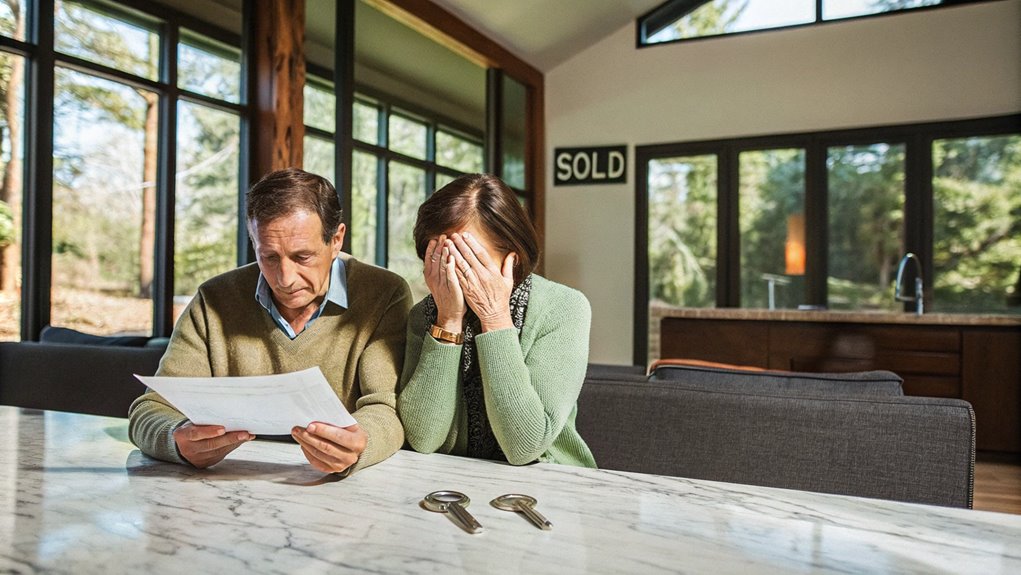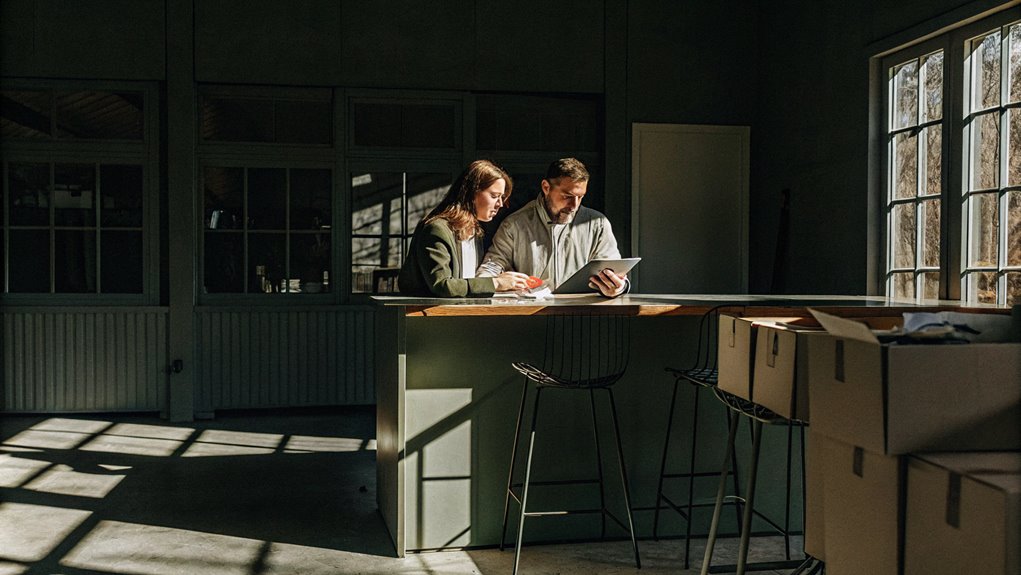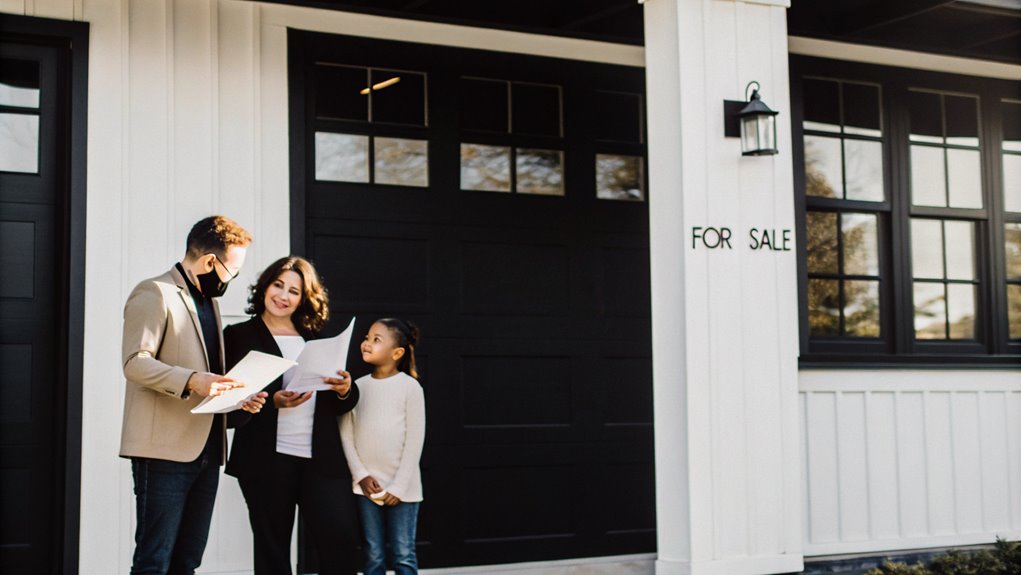Taking money from your home can be tricky. When you do this, you need to pay more each month for a longer time. You will also have less value in your home. Banks will charge you extra money to do this – about $2 to $6 for every $100 you borrow. If house prices go down, you might end up owing more than your home is worth. And if you lose your job, it could be hard to pay the bank. Then you might lose your home. Think hard before you take this step with your home and your money.
Higher Monthly Payment Obligations

Taking cash from your home's value means you'll pay more each month. This happens for two simple reasons. First, you're borrowing more money than before. Second, you might get a new interest rate that costs more.
Think of your monthly budget. You need to make sure you can pay more each month. When you borrow from your home's worth, you owe more money than you did at first. Even if you get a better rate, your payments will go up because you're paying back more money.
Watch out for when rates are high. You might end up paying more interest than you do now. When you mix owing more money with higher rates, you'll have bigger bills to pay for many years. This can make it harder to use your money for other things you need.
Extended Long-Term Debt Burden
Taking out more money on your home loan means you'll be paying it back for a longer time.
Think of it like stretching out a rubber band – the longer you stretch it, the more it costs you.
You'll need to make payments each month for extra years.
This means you end up paying more money over time because the bank keeps charging you interest.
Monthly Payments Stretch Longer
Taking out money from your home loan gives you cash now, but it makes your loan start over for 15 or 30 more years. This means you'll be paying your house off for a longer time.
You'll also end up paying more money in the long run, even if you get a better rate.
Here's what happens over time:
- Years 1-5: You pay less each month
- Years 6-10: More of your money goes to interest
- Years 11-15: You build less home value
- Years 15-20: It takes longer to pay off your home
- Years 20-30: You still have house payments
When you make your loan longer, you get smaller payments now but pay more later.
While your monthly bill might feel easier to handle today, you'll keep making payments when you could have owned your home free and clear.
Interest Costs Keep Growing
Taking out extra money from your home loan can cost you a lot more money over time. When you borrow more, you have to pay back not just what you borrowed, but extra money called interest.
Think of it like this: You now owe more money than before, and the bank wants you to pay them back with extra money on top. This means:
- You start paying more money right away
- Over many years, you might pay thousands more than you first planned
- At first, most of your monthly payment goes to interest, not your home
- You own less of your home while owing more money
Even if you get a better interest rate on your new loan, you still end up paying more because you borrowed more money than before.
Risk of Underwater Mortgages

When you take money from your home through cash-out refinancing, you need to be careful. The biggest worry is owing more money than your home is worth. This is called being "underwater."
Think of your home like a piggy bank. When you take money out, you own less of your home and owe more to the bank. If home prices go down, you could end up in trouble.
Here's what can happen when home prices drop:
- A small drop: You lose some safety money
- A bigger drop: You can't sell or get a new loan
- A big drop: You might lose your home
- A very big drop: You might walk away from your home
- A huge drop: Your credit score gets very bad
This gets even worse if you lose your job when home prices are falling. You could end up losing your home or having to file for bankruptcy. Many families went through this during bad times in the past.
Depleting Your Home's Equity
Your Home's Worth is Like a Piggy Bank
Taking money from your home can feel good now, but it's like breaking open your piggy bank too much. When you keep taking money out, you own less of your home. This can hurt you later.
Taking money from your home can be bad because:
- You have less savings for when you need help
- You pay more each month
- You can't make big choices about your home later
- If home prices drop, you might lose your house
Think of your home like a savings account. You put money in it every month when you pay your bills.
When you take money out, you lose what you saved up over many years. Sure, the cash helps right now – but you might need that money more when you're older.
Market Value Fluctuation Risks

Your home's value can go up and down like a seesaw.
If you take money out of your home when prices are high, you might end up owing more than your home is worth if prices drop.
Think of it like buying a toy at full price, then seeing it on sale later – you paid too much.
Before you take money from your home, make sure you think about what could happen if home prices go down.
This could make it hard to sell your home or get a new loan later.
Underwater Mortgage Dangers
When you borrow more money on your home, bad things can happen if home prices drop. If you end up owing more than your house is worth, you'll be stuck in a tough spot.
Watch out for these big problems:
- You can't sell unless you pay extra money at closing
- You can't get a new loan with a better rate
- You can't move to take a new job easily
- You might've to pay more for home insurance
When you owe more than your home is worth, it feels like being trapped. You can't make smart money moves or build wealth like you want to.
Before you take out more money from your home, look at how home prices are doing in your area. Think about what might happen to prices in the future.
Market Timing Gone Wrong
When people try to get money from their homes at the "perfect time," things can go wrong fast.
Think of Tom and Sarah, who took cash from their home in 2007. They thought house prices would keep going up. But then prices fell, and they ended up owing more than their house was worth.
Your house is like a piggy bank. If you take too much money out when prices are high, you might get stuck if prices drop. You won't be able to sell your house or get a new loan.
Even if house prices look good now, no one knows what'll happen next. It's better to keep some savings in your house than to guess when prices will be highest.
This way, you and your family stay safe, no matter what happens to house prices.
Hidden Fees and Closing Costs
When you get a new home loan to take cash out, there are costs you need to know about.
These costs can eat into the money you hope to get. Think of them like a bite out of your savings pie – they take away 2% to 6% of what you borrow.
You'll need to pay:
- A fee to start the loan – about $500 for every $100,000 you borrow
- Fees to check who owns the house – between $700 and $2,000
- Money for someone to look at your house – about $300 to $600
- Small fees to check your credit and file papers
Here's the tricky part: banks often add these costs to your loan.
This means you pay more money over time because you're paying interest on these fees too.
Before you sign up, add up all these costs.
Make sure the cash you get is worth what you'll pay.
Foreclosure Vulnerability

Your Home at Risk
Taking cash out of your home through a new loan can put your house in danger. You'll need to pay more each month, and you won't have as much money saved in your home. This makes it hard if you run into money troubles.
What puts your home at risk:
- Higher monthly bills strain your budget
- Less money saved in your home
- Home prices might drop
- You could lose your job
- You might get sick and have big medical bills
When you take money out of your home, you trade safety for quick cash. If home prices go down, it gets hard to sell your house or get a new loan.
Many people don't see this danger until it's too late. This is worst when the economy is bad or when you face money problems.








